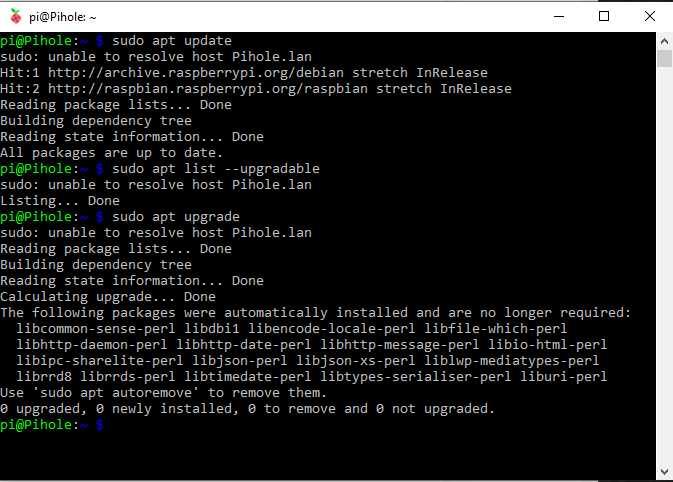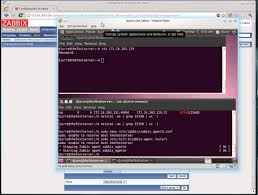

- Systemctl sudo unable to resolve host webserver install#
- Systemctl sudo unable to resolve host webserver update#
It’s our hope that you now have an idea about the ‘ temporary failure in name resolution‘ error and how you can go about fixing it in a few simple steps.

$ sudo firewall-cmd -add-port=43/tcp -permanent Have followed the instructions here to add user ubuntu to a newly created group, LimitedAdmins, which is confirmed with: getent group LimitedAdmins LimitedAdmins:x:1001:ubuntu Created a new file, limitedadmins (using sudo vim) in the /etc/sudoers. To open ports 53 & 43 on the UFW firewall run the commands below: $ sudo ufw allow 53/tcpįor Redhat based systems such as CentOS, invoke the commands below: $ sudo firewall-cmd -add-port=53/tcp -permanent If the ports are blocked, open them as follows: For UFW firewall (Ubuntu / Debian and Mint) Check your firewall and confirm if port 53 (used for DNS – Domain Name Resolution ) and port 43 (used for whois lookup) are open. If the first solution did not work for you, firewall restrictions could be preventing you from successfully performing DNS queries. Then try pinging any website and the issue should be sorted out. It’s also prudent to check the status of the resolver and ensure that it is active and running as expected: $ sudo systemctl status rvice Save the changes and restart the systemd-resolved service as shown. If this file is not present or is there but you are still having the name resolution error, create one and append the Google public DNS server as shown nameserver 8.8.8.8 It contains the DNS entries that help your Linux system to resolve domain names into IP addresses. The /etc/nf file is the resolver configuration file in Linux systems. In this article, we will look at some of the causes of the ‘ temporary failure in name resolution‘ error and solutions to this issue.
Systemctl sudo unable to resolve host webserver install#
This can present a grave challenge as you will not be able to update, upgrade, or even install any software packages on your Linux system.

This is usually a name resolution error and shows that your DNS server cannot resolve the domain names into their respective IP addresses. Thus, the full command would be sudo nano /etc/hosts or sudo nano /etc/hostname. These files are owned by root, thus you need to use sudo to edit them. Step 1 Installing Apache Apache is available within CentOS’s default software repositories, which means you can install it with the dnf package manager. Ping: : Temporary failure in name resolution You can use nano or pico to edit them if youre new to the OS.
Systemctl sudo unable to resolve host webserver update#
Sometimes when you try to ping a website, update a system or perform any task that requires an active internet connection, you may get the error message ‘ temporary failure in name resolution’ on your terminal.įor example, when you try to ping a website, you might bump into the error shown: :~$ ping


 0 kommentar(er)
0 kommentar(er)
